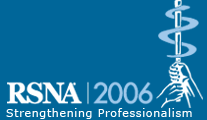
Abstract Archives of the RSNA, 2006
Peter Rowlands MBBS, Presenter: Nothing to Disclose
Andrew Healey, Abstract Co-Author: Nothing to Disclose
Laurence Abernethy MD, Abstract Co-Author: Nothing to Disclose
This study describes clinical outcomes in 90 patients undergoing 150 sclerotherapy procedures for low-flow vascular malformation.
90 patients with symptomatic low-flow vascular malformations were studied. Diagnosis was made by clinical assessment, color flow doppler and/or MR. Procedures were performed using either alcohol under general anaesthesia, or sodium tetradecyl under local anaesthesia. All procedures were performed under image guidance.
Patients were folllowed up clinically and by duplex ultrasound.
150 procedures were performed in 90 patients.
There were two complications, temporary neuropraxia in one patient and a small skin ulcer, which healed with a very small scar in one. Both complications occurred with alcohol. No complication was seen with sodium tetradecyl.
Significant symptomatic benefit accrued in 80/90 patients.
Percutaneous sclerotherapy is efffective in management of low-flow vascular malformations. Complications are uncommon, especially using sodium tetradecyl.
Sclerotherapy is the management of choice for symptomatic low-flow vascular malformations
Rowlands, P,
Healey, A,
Abernethy, L,
Sclerotherapy of Low-Flow Vascular Malformations. Radiological Society of North America 2006 Scientific Assembly and Annual Meeting, November 26 - December 1, 2006 ,Chicago IL.
http://archive.rsna.org/2006/4439983.html

